Godwar Camel Cheese Fest
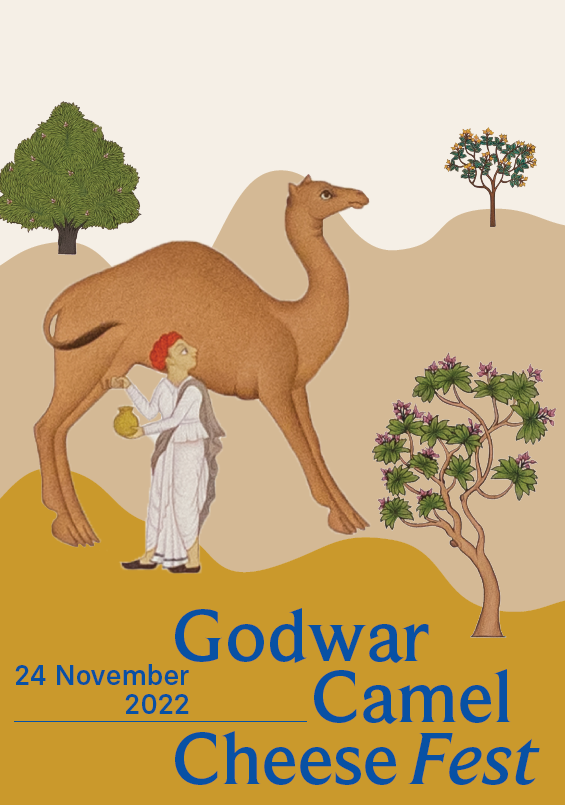
LPP is proud to support a special event of its partner organizations in Rajasthan, Lokhit Pashu-Palak Sansthan and Camel Charisma, the Godwar Camel Cheese Fest that seeks to draw attention to the culinary potential of various camel dairy products, especially cheeses, on 23rd and 24th November.

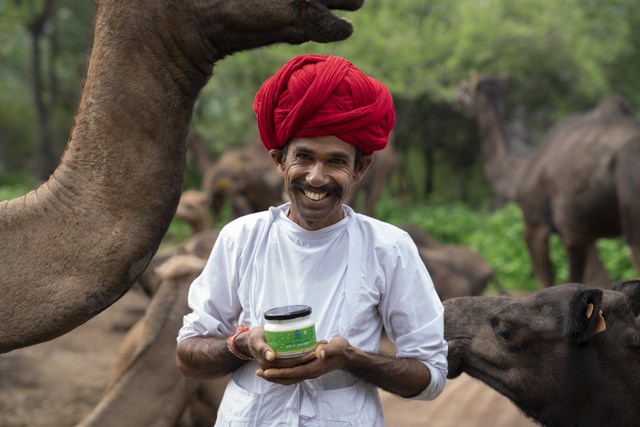

This is all-out effort to support the livelihoods of Raika camel nomads, to save camels, and Rajasthan’s globally unique camel culture. The fest will also highlight the concept of cruelty-free milk, and along with the opportunity to enjoy a camel cheese tasting menu, there will be a chance to mingle with camel breeders, enjoy an evening under the stars among a camel herd, undergo the aak leaf ritual (the traditional way of drinking camel milk), and learn about the history of camel cheese.
Here is the detailed programme and if you happen to be in Rajasthan and would like to participate, please reserve your seat here!
Launch of new Accounting for Pastoralists studies on 27th September, at 1 pm CEST.
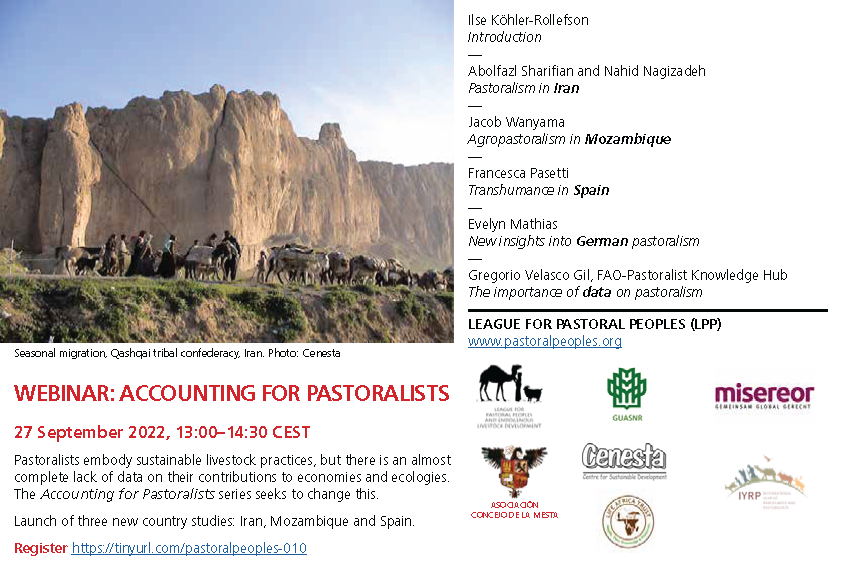
Please join us for the release of new Accounting for Pastoralists studies for Iran, Mozambique and Spain, as well as an update on the situation in Germany, and commentary by Gregorio Velasco Gil of FAO’s Pastoral Knowledge Hub on Tuesday, 27th September, 2022 at 1 p.m. CEST.
Register here.
Livestock and Planetary Boundaries
In order to accompany and set the scene for the South-Asia Regional Meeting of the Global Agenda for Sustainable Livestock (GASL), LPP, in collaboration with ANTHRA, organised a three day hybrid workshop to discuss Planetary Boundaries for Livestock. The event took place in Jodhpur (Rajasthan) from 22-24 August, 2022. It started out with an introduction to the theme by Nitya Ghotge followed by a brilliant presentation from Katrien van’t Hooft entitled Dutch farmers in distress – a case of exceeding environmental boundaries that explained the background of the current situation in the Dutch dairy sector. The final paper of the day was by Debanjana Dey about the science and policy interface for the conservation of animal genetic resources in India.
After a summary of the first day’s procedings by Prof. Selvarajan Rajeshwaran, the second day began with a presentation by Kamal Kishore and Ilse Köhler-Rollefson contextualising the Indian livestock sector from the perspective of Planetary Boundaries. This was followed by extensive comments from academia by Prof. Sarjan Reddy and from the grassroots by Amir Hamja, founder of the Van Gujjar Yuvak Sangathan. Amir Hamja described in detail the relationship of his community, the Van Gujjars, with their buffaloes and the Himalayan landscape, and how respect for planetary boundaries is an integral part of their culture.
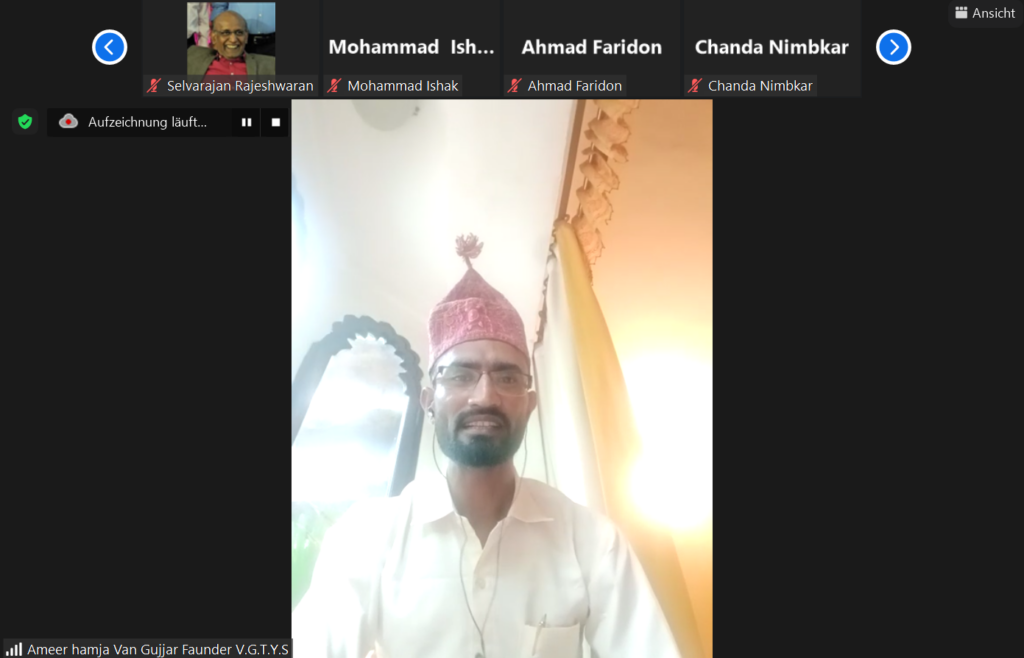
In the afternoon of 23rd August, Robyn Alders of the Australian National University presented the keynote address for the official South Asia regional meeting of GASL, also focusing on Planetary Boundaries. This was followed by a panel discussion with distinguished participants from various South Asian countries.
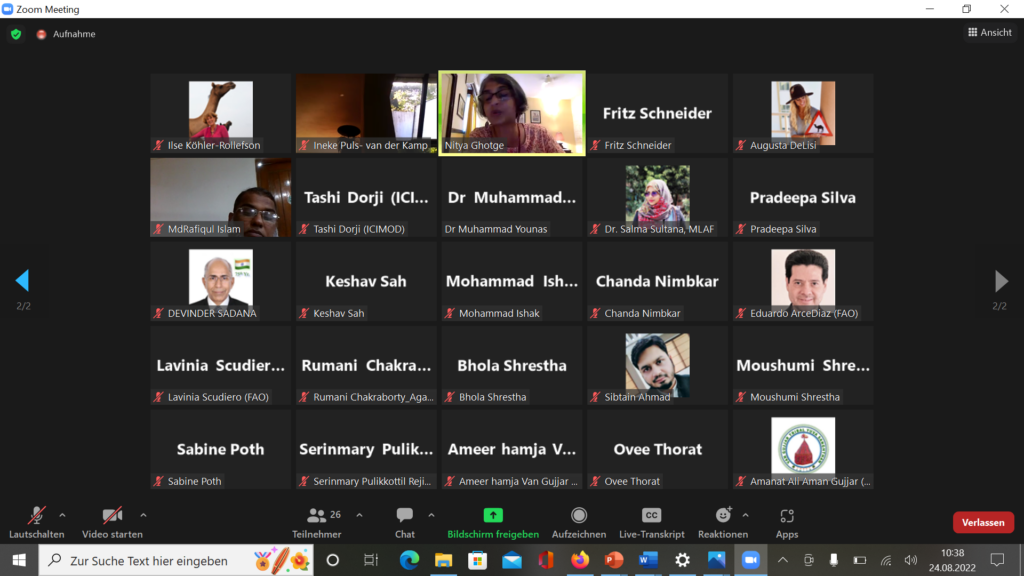
The final day saw various presentations that focused on innovative and small-scale approaches to put livestock development on a sustainable track, moderated by Chanda Nimbkar of the Nimbkar Agricultural Research Institute and by Ovee Thorat, a free lance researcher. This included a contribution by Himmothan on decentralized feed mills in the Himalayan region and an account of community based eco-restoration of grasslands by Kaustubh Pandharipande from the Foundation for Economic and Ecological Development.
Noteworthy among them was a contribution by Augusta deLisi, founder of Nomadic Nutrition, who explained her vision for the production of ‘cruelty-free’ camel milk based health food that would provide an alternative for people turning vegan because of animal welfare concerns.
